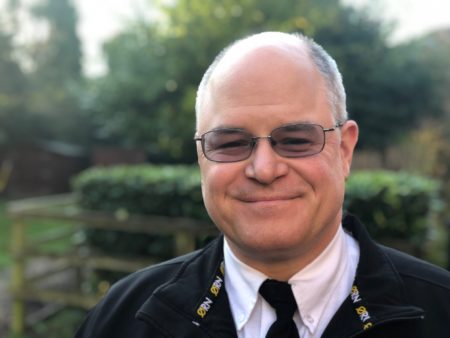Securing good Mental Health support on campus
Date 2.12.2019
2.12.2019
Whether you’re a student, member of staff, visiting the campus, or living around our campus, you’re likely to meet our Security Team, who are now highly skilled in supporting people struggling with their mental health.
The University of Northampton already has over 100 trained and qualified Mental Health First Aiders, working to promote good mental health, and support those in crisis, now that number is swelling. The 40 strong Campus Security team, who are on campus 24/7, will all be qualified Mental Health First Aiders by the end of 2020.
Mental Health First Aid (MHFA) is an international awareness and skills programme. First Aiders learn how to spot the signs and symptoms of a range of mental health issues. They are then taught how to provide help on a first aid basis and guide the person towards the support services.
Laura McSherry, Security and Community Safety Manager at the University said: “We’re facing the stigma around Mental Health head on here at the University of Northampton, we want mental health to be openly discussed and supported on campus. We have big plans for making sure the University community is as healthy as possible, so having these new MH ‘first aiders’ on hand will help ensure that continues.
“The Security team are often the first port of call for the campus community; they’re out on patrol, chatting to students, staff and visitors, they’re also one of the services which operates 24/7, by virtue of that, they’re often in the right place, at the right time to help people. I believe this specialist Mental Health First Aid training will help to make our campus community more resilient and aware of their mental health and the ways in which they can get support should they need it.”
Anthony Webb, Security Officer at the University, who has recently completed the MHFA training, said: “University life is a wonderful experience, but it does test people’s resilience. You can easily see that at the key points in the academic year – early on if people are getting homesick, and when its assignment time and the pressure is on.
“This Mental Health First Aider training has helped me to recognise the subtler signs in students, staff and the wider university community, that people might be struggling with their mental health. I feel confident now, to have a conversation with someone think might be struggling; listen to them and offer them some support at the time, then help them to get more long-term, specialist, support from the University if they feel they need it.”
Pictured: Anthony Webb, Duty Security Supervisor.